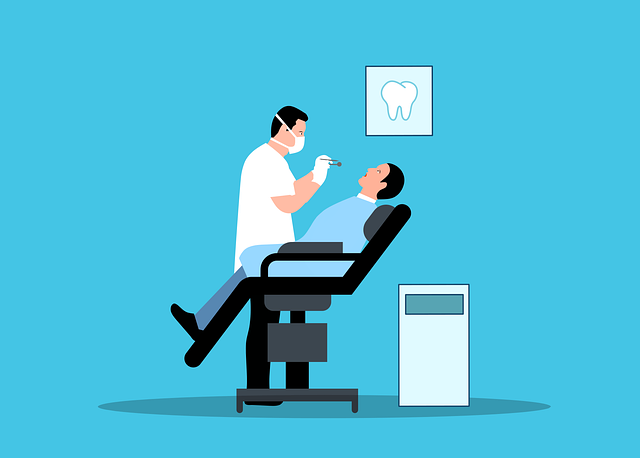Choosing between known and anonymous egg donors for women with ovarian conditions requires weighing openness, privacy, and connection against medical needs. Known donors offer trait selection and potential future contact but carry emotional risks. Anonymous donors ensure privacy but limit control and access to donor info. Informed decisions require understanding legal aspects, personal values, and emotional considerations, guided by medical professionals, to align reproductive options with unique circumstances.
Considering donor eggs? Navigating known vs. anonymous donors is a crucial step in your journey. This guide explores both options, helping women with ovarian conditions make informed decisions about their fertility treatments. We delve into the benefits and risks of each choice, discuss legal and emotional considerations, and offer insights to help you choose the path best suited for your unique circumstances.
Understanding Known vs. Anonymous Donors
Choosing between known and anonymous egg donors is a significant decision for women considering donor eggs due to ovarian conditions. Known donors, as the name suggests, are individuals who voluntarily disclose their identity, often with the expectation of maintaining some level of connection with the recipient or the child they help conceive. This option offers transparency and allows for personal interaction, which can be comforting for many prospective mothers. On the other hand, anonymous donors prefer to remain unidentified, providing eggs without any future contact expectations, ensuring privacy for both parties involved.
For women with specific medical needs, understanding these donor types is crucial when navigating the complexities of fertility treatments. Known donors might provide a sense of comfort and control over the process, while anonymous donors offer discretion and a direct path to parenthood without revealing sensitive personal information. When deciding between known or anonymous egg donors for donor eggs, each woman must weigh her preferences for openness, privacy, and connection against her medical requirements and desired level of involvement in the donation process.
Benefits and Risks of Each Option
When considering donor eggs for women with ovarian conditions, understanding the benefits and risks of known versus anonymous donors is essential.
Opting for a known egg donor offers several advantages. These include the ability to select an individual with specific traits or characteristics you find desirable, providing some level of control over the donation process, and potentially fostering a deeper connection between mother and child later in life due to the transparency. However, there are risks involved, such as emotional attachment issues for both donor and recipient, potential family dynamics complications, and limited availability since known donors often have specific criteria themselves.
Choosing an anonymous egg donor, on the other hand, ensures privacy and secrecy for all parties involved. It removes the emotional complexities that can arise from knowing the donor and allows recipients to focus solely on the medical aspects of the procedure. However, this anonymity comes with its own set of risks, including a lack of control over donor selection, limited access to medical history and genetic information, and potential emotional distress if identifying details were ever to be revealed.
Legal and Emotional Considerations
When considering donor eggs for women with ovarian conditions, understanding the legal and emotional aspects is paramount. Legally, the process involves comprehensive contracts that outline the rights and responsibilities of both the recipient and donor. These agreements ensure transparency and protect all parties involved. In some jurisdictions, anonymity may be granted to the donor, while in others, a known donor relationship is mandated. This choice has significant implications for privacy and future contact.
Emotionally, the decision to use donor eggs can be complex. Women with ovarian conditions might face additional anxiety about fertility and genetic contributions. Known donors can offer a sense of connection, but anonymity provides comfort and privacy. Balancing these considerations is crucial in making an informed choice that aligns with personal values and circumstances.
Choosing the Right Path for You
Choosing the right path for you is a deeply personal decision, and understanding your unique circumstances is key. If you’re considering donor eggs due to ovarian conditions, evaluating both known and anonymous options is essential. Known donors offer a sense of connection and control, allowing you to select an individual who aligns with your preferences. This choice can provide comfort and potentially build a relationship with the chosen donor or her family. On the other hand, anonymous donors ensure privacy and anonymity for both parties, which may be appealing if you seek discretion or have specific medical needs that require confidentiality.
When deciding, consider your emotional well-being, the level of transparency you desire, and the potential impact on your future family. Discussing these options openly with your doctor or a counselor can help guide your decision, ensuring you make an informed choice tailored to your individual situation and desires regarding donor eggs for women with ovarian conditions.
When considering donor eggs for women with ovarian conditions, understanding the nuances between known and anonymous donors is essential. Both options come with unique benefits and risks, requiring careful legal and emotional evaluation. Ultimately, the choice should align with your personal preferences, ensuring a supportive environment for both parties involved. By weighing these factors, you can navigate this path toward building a family with confidence.
